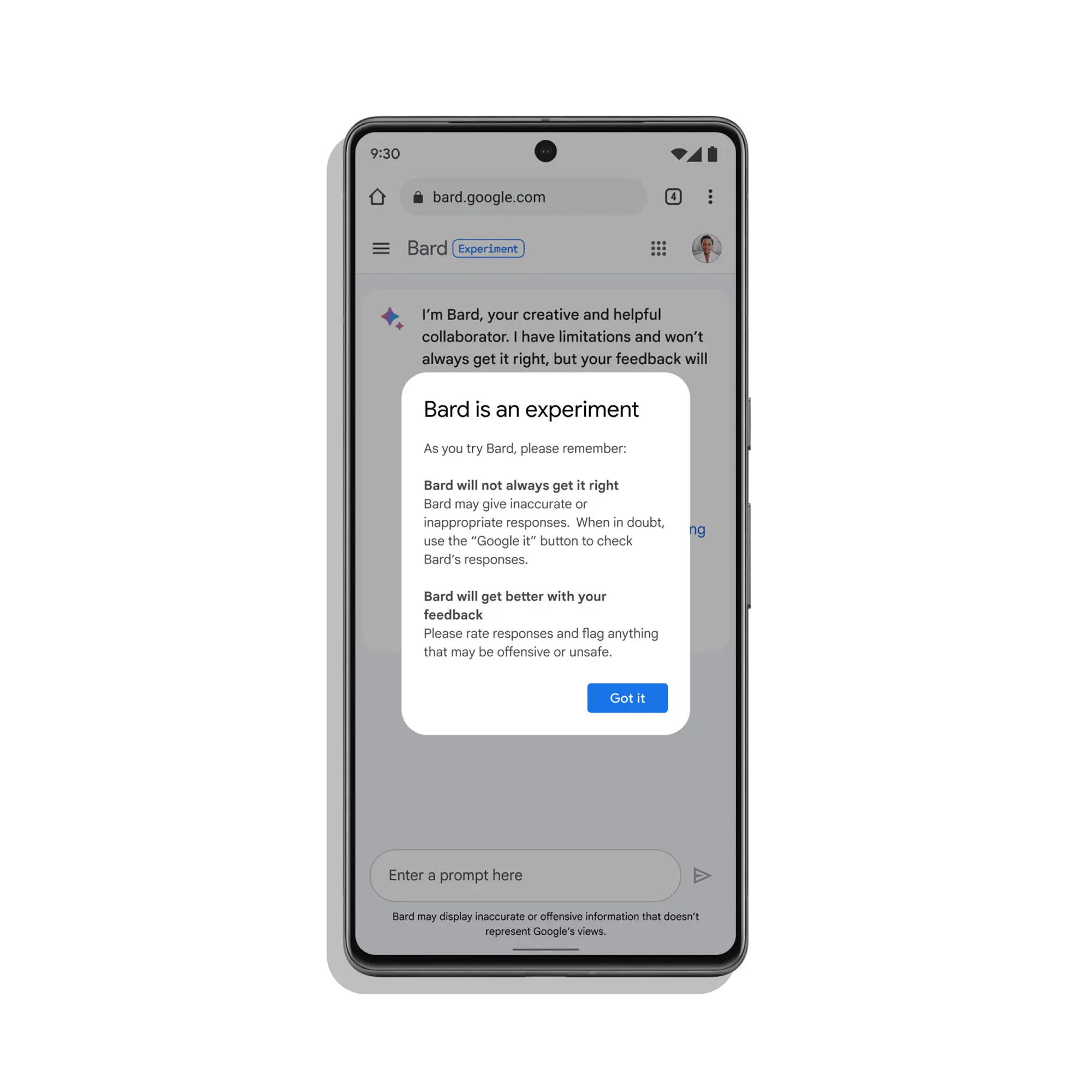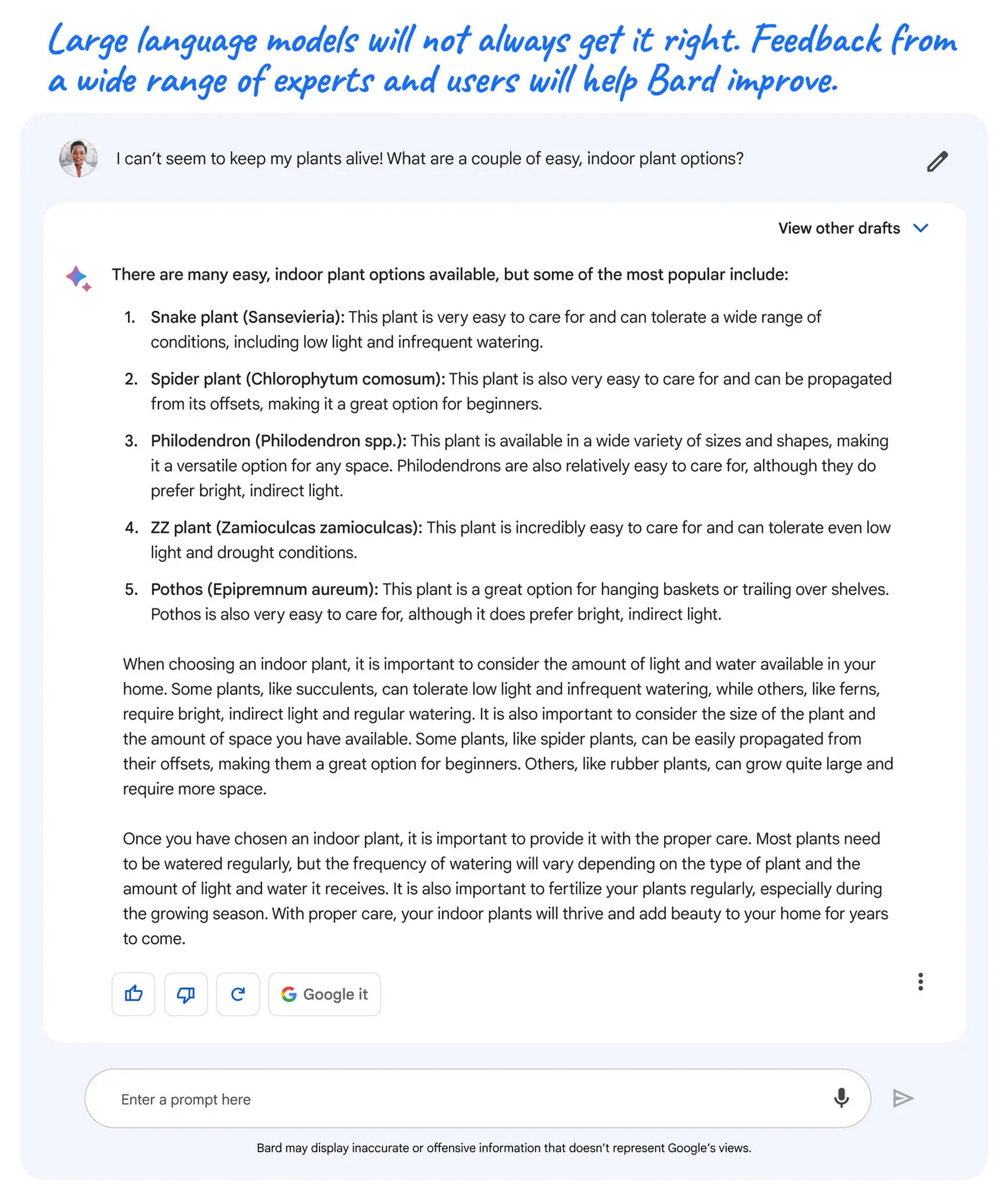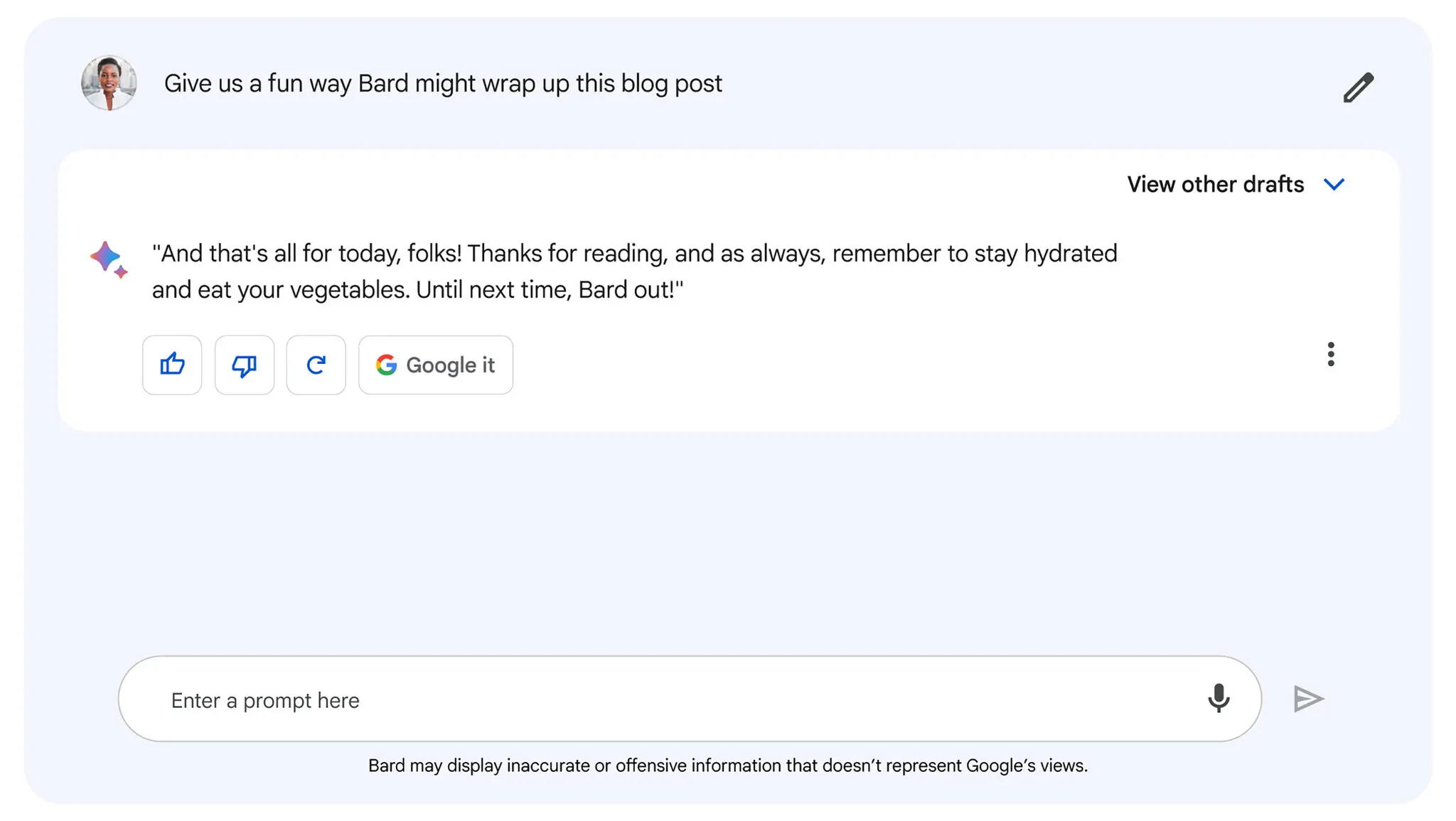Google on Tuesday launched limited public access to its chatbot Bard, following a rapid development process that was triggered by the overnight success of Microsoft-backed ChatGPT late last year.
But the search giant is taking a markedly different approach to that of start-up OpenAI, the developer behind ChatGPT, with the keynote being “caution”.
Two of the project’s leads, Sissie Hsiao and Eli Collins, described the project in a blog post as an “early experiment” allowing users to “collaborate with generative AI”, and their announcement is replete with disclaimers that Bard can make mistakes.
The warnings follow Google’s initial announcement of Bard last month, when a demonstration that showed the chatbot giving incorrect information caused the search firm’s shares to nosedive.

‘Bard will not always get it right’
The interface is festooned with warnings, such as a pop-up that reads, “Bard will not always get it right”.
Bard’s responses also show little of the chaotic personality of ChatGPT, which Microsoft has added to its Bing search engine for a limited number of users.
While reports abound of the strange behaviours users have spurred the Bing chatbot into enaging in, Bard is far more constrained in its responses, which Google says is part of developing the technology “responsibly”.
For instance, unlike the long and strange conversations with the Bing chatbot reported in outlets such as the New York Times, Bard has a cap on the number of exchanges in a dialogue.
Hsiao and Collins wrote that this was intended “to try to keep interactions helpful and on topic”.

‘Curiosity’
Demonstrations released by Google, such as a query asking the chatbot to “Brainstorm some ways to help me read 20 books this year”, showed Bard giving simple and unimaginative advice, such as making a list of books to read.
Hsiao and Collins described Bard as a “complementary experience to Google Search” that could be used to “boost your productivity, accelerate your ideas and fuel your curiosity”.
The tool features a button allowing the user to Google their query and also occasionally references sources it cites, such as Wikipedia.
The chatbot often gives three “drafts” of its responses, allowing users to see a variety of responses – although early users said in some cases all three of the responses included incorrect data.
Google said Bard would be available initially to users in the US and the UK, with expansion elsewhere planned over time.






